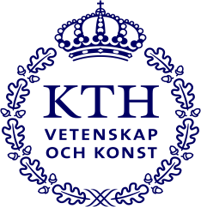About

The Center for Anthropocene History is a multi-disciplinary, research-focused center. We aim to build a novel, integrated approach to the past, present and future of the cumulative anthropogenic environmental transformation of the planet. We contend that modern history is an essential sense-making and navigational tool for the understanding of our contemporary world.
Building on advances in Earth System and Anthropocene science, multiple strands of work in history (of, especially, environment, climate, energy, media, science, technology, infrastructures), and the neighbouring integrative field of Environmental Humanities, the Center systematically works to mend the longstanding separation between Earth history and human history. A seperation that the Anthropocene proves to be obsolete.
Our specific aims include, first and foremost, developing a new interdisciplinary field of research with the intention to break new ground in the humanities and the social sciences. We also aim to make historical research more relevant, both to the sciences and for contemporary challenges, and vice versa.
The Centre undertakes a novel approach to modern and contemporary history, aiming to reform historical research and develop a new understanding of ‘human-and-Earth-history’ by using the notion of the Anthropocene as both study object and mode of study. In other words, we study the history of human-earth change known as the Anthropocene while also taking on the methodological and theoretical challenges this implies in reforming the foundations of modern historiography.
We perceive the Anthropocene not just as a geochronological epoch, but as a state of the world where the human and the natural intersect so profoundly that the writing of history – part of the humanities and the social sciences – is changing towards the natural and the material. To do this, we will build on the extensive range of histories developed in our existing research environment, all of which are arguably already Anthropocene histories. By drawing them together under the official name of Anthropocene History, we are building a novel field from these independent and developing research topics in a bottom-up way, and are giving them new relevance and forms for collaboration and interaction.
The centre is based at the Division of History of Science, Technology and Environment at KTH.
Centers of Excellence are supported by the Swedish Research Council, (Vetenskapsrådet). There are 15 Centers of Excellence in Sweden , five of which are in the humanities and social sciences. According to the Swedish Research Council, the centres "shall carry out ground-breaking research and educational activities around a central theme. The investment in centres of excellence enables new research fields to emerge. The new centres will offer programme activities within an overarching thematic area, and give researchers from different established research disciplines the opportunity to work there for short or long periods."
Follow and Engage online
Sign up to our newsletter to receive our news and events.
Follow our our Facebook page here
More about the center
Interview with co-director Sabine Höhler about the successful application to fund the centre, made to the Swedish Research Council (VR) [in Swedish]
Co-director Sabine Höhler is interviewed in the two videos below as a Center of Excellence Director, by the Swedish Research Council's channel, 'Vetenskapsrådet Play' (vr.se)
1.
What is the purpose of the centre of excellence?
2.
How do you create a successful research environment?
Visiting address
Division of History of Science, Technology and Environment
Teknikringen 74D, level 5
SE-114 28 Stockholm
Sweden
Post address
KTH Royal Institute of Technology
Att: Center for Anthropocene History, Division of History of Science, Technology and Environment
SE-100 44 Stockholm

